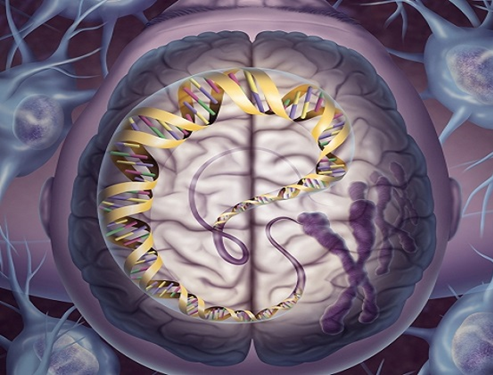Neurobiology Research Group
The Neurobiology Research Group seeks to unravel the mechanisms of cognitive functions, from attention and behavior to memory and executive control. We are interested in cognitive dysfunction in a broad spectrum of neurological, neurodevelopment and psychiatric disorders and aims to study various aspects of neurodegeneration, using a multidisciplinary approach form behavioral studies to advanced molecular biology techniques.
Group Members:
- Dr. Touqeer Ahmed (touqeer.ahmed@asab.nust.edu.pk)
- Dr. Saadia Zahid (saadia.zahid@asab.nust.edu.pk)
Lab Demonstrator:
- Mahnoor Ijaz(mahnoor.ejaz@asab.nust.edu.pk)
Grants & Awards:
- HEC Project: Evaluation of therapeutic potential of resveratrol in metals-induced neurotoxicity.
- HEC Project: Elucidation of potential effects of anti-diabetics and acetylcholine esterase inhibitors: a comparative analysis for combined therapeutic strategies for type 2 diabetes and Alzheimer’s disease.
- HEC Project: Elucidation of the effects of Amphetamine and natural psycho-stimulant compounds in Alzheimer’s disease.
Selected Research Publications:
- Ozawa T, Ycu EA, Kumar A, Yeh LF, Ahmed T, Koivumaa J and Johansen JP. A feedback neural circuit for calibrating aversive memory strength. Nature Neuroscience. 2017.
- Khalid A, Shakeel R, Justin S, Iqbal G, Shah SA, Zahid S, Ahmed T. Pharmacological effects of turmeric on learning, memory and expression of muscarinic receptor genes (M1, M3 and M5) in stress-induced mouse model. Curr Drug Targets. 2017.
- Ahmed S, Mahmood Z, Javed A, Hashmi SN, Zerr I, Zafar S, Zahid S. Effect of Metformin on Adult Hippocampal Neurogenesis: Comparison with Donepezil and Links to Cognition. J. Mol. Neurosci.2017.
- Farhat SM, Mahboob A, Iqbal G, Ahmed T. Aluminum Induced Cholinergic Deficits in Different Brain Parts and Its Implications on Sociability and Cognitive Functions in Mouse. Biological Trace Element Research. 2016.
- Ahmed T, Zahid S, Mahboob A, Farhat SM. Cholinergic System and Post-translational Modifications: An Insight on the Role in Alzheimer’s disease. 2016, Curr Neuropharmacol.
- Zahid S, Oellerich M, Asif AR, Ahmed N. Phosphoproteome profiling of substantia nigra and cortex regions of Alzheimer’s disease patients. J. Neurochem. 2012.
DETAILS OF GROUP MEMBERS:
Dr. Touqeer Ahmed (Neurobiology Research Group)
We are trying to investigate the cellular and molecular mechanism of memory impairment in Alzheimer’s disease. Using different behavioural assays and gene expression studies in mice model, we are studying the underlying pathophysiological mechanism in learning and memory.
Focus of the Laboratory:
- Alzheimer’s Diseaseand Aging
- Learning and Memory
- Behaviour Analysis
- Synaptic Plasticity and Electrophysiology
Lab Members:
PhD Scholars:
- Abida Zulfiqar
- Humna Asghar
- Sara Ishaq
MS Students:
- Maham Noreena Nawaz
- Dawood Amjad
- Alveena Siddiqui
- Muhammad Akash
- Sameen Fawad
- Natasha
Current Projects:
As PI
- Evaluation of therapeutic potential of Resveratrol in metals-induced neurotoxicity, NRPU-HEC.
- Evaluation of time dependent effects of Aluminum exposure on synaptic impairment
- Evaluation of impairment in cognitive function by temporal exposure of arsenic and post exposure recovery.
- Effect of temporal exposure of Aluminium on hippocampus dependent cognitive functions and post exposure recovery.
- Effects of time-dependent exposure of cadmium on hippocampus dependent cognitive functions and post exposure recovery in mice.
As Co-PI
- Expression of DNMTs and MBDs in AICI3induced mouse model of Alzheimer’s disease. Internal Research Grants (IRG) 2012 Competition, Alfaisal University. IRG No. 313091711126, Amount 43,250.00 SAR.
- Expression of Epigenetic markers in AlCl3induced mouse model of Alzheimer’s disease. Small Research Project Grants (SRPG) 2012, College of Medicine, Alfaisal University. IRG No. 313090202133, Amount 80,312.50 SAR.
Research Funding:
- Evaluation of therapeutic potential of Resveratrol in metals-induced neurotoxicity, NRPU-HEC, PKR 2.58 M. Grant duration: 2019-2021
Dr. Saadia Zahid’s (Neurobiology Research Group)
The brain is the essence of our minds that makes us human while governing and maintaining cellular and molecular mechanisms required for a healthy body. The aim of our research is to understand the various underlying mechanisms in Alzheimer’s disease (AD) through advance molecular approaches. The lab is extensively involved in exploring the molecular basis of neurodegenerative disorders with a focus on neuronal damage, cellular aging and various post translational modifications (PTMs) using both in vivo and in vitro systems with a variety of techniques including neuroscience, structural biology, novel proteomics and genomics technologies. We are also curious to unravel the molecular association between metabolic disorders with AD by studying effects of synthetic antidiabetic drugs. The researchers at our lab are also involved in investigating various natural products of therapeutic potential which offers an excellent approach to identify novel agents to treat AD and its associated disorders. The lab successfully established the role of various natural compounds as active psychostimulant and anti-anxiety and depressant agents. In addition, involvement of various PTMs in glioblastoma multiforme is another exciting research target of our lab. We at NBL are determined to find novel drug candidates to develop better therapeutic strategy for combating AD and other neurological aberrations by employing both wet lab and Insilico approaches.
Focus of the Laboratory:
- AD as a metabolic disorder: a new paradigm
- Proteomics and Genomics of AD
- Post-translational modifications in AD and brain tumor.
- Proteins as drug targets for AD
- Phytochemicals of therapeutic potential for AD
Laboratory Members:
PhD Scholars:
- Sanila Amber
- Sumera Khan
- FatimaJaved Mirza
MS Students:
- Sameen Asghar
- Sakina
- Umar Farooq
- Nishat Malik
Current Project:
- Elucidation of potential effects of antidiabetics and acetylcholine esterase inhibitors: a comparative analysis for combined therapeutic strategies for type 2 diabetes and Alzheimer’s disease. (2017-2020, PKR 2.45M).
Research Funding:
- Higher Education Commission of Pakistan (HEC).
- National University of Sciences and Technology (NUST).


